I'm trying to create a code which divides a uint64_t by another uint64_t plus it applies rounding to the result. The code should be as fast as possible and work for all inputs (e.g. I would prefer it to now have and conditionals).
My current solution looks like this:
static inline uint64_t divide_with_rounding(uint64_t n, uint64_t d)
{
uint64_t a = n / d;
uint64_t r = n % d;
return a + (r >= d - (d / 2));
}
gcc optimizes the division+modulo quite nicely and as well the / 2. But I wonder if there's a shorter and nicer solution.
E.g. something like this:
static inline uint64_t divide_with_rounding(uint64_t n, uint64_t d)
{
return (n + d / 2) / d;
}
However that one has the disadvantage that divide_with_rounding(UINT64_MAX, 1000) produces 0.
